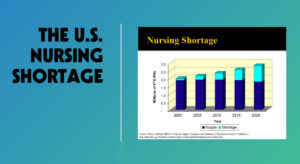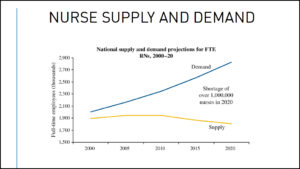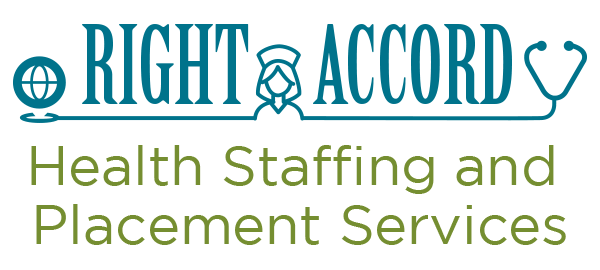The Looming Crisis of Nursing Shortage and Its Impact on US Healthcare

Introduction
The United States is facing a critical challenge that threatens the very foundation of its healthcare delivery system: a severe nursing shortage.
The shortage of qualified nurses has reached alarming levels, leaving hospitals, clinics, and other healthcare facilities struggling to provide adequate care to patients. In this article, we will explore the current situation of the nursing shortage in the US and delve into how it is affecting the healthcare delivery system.

The Current Nursing Shortage
The nursing shortage in the US can be attributed to various factors. Firstly, an aging population has increased the demand for healthcare services. As the baby boomer generation reaches retirement age, the need for medical care has surged, putting an unprecedented strain on the healthcare system. Concurrently, a significant portion of the nursing workforce is also approaching retirement, exacerbating the shortage.
Additionally, the increased complexity of healthcare has heightened the demand for skilled nurses. Technological advancements, new treatments, and specialized care requirements necessitate a highly trained nursing workforce. However, nursing schools are struggling to produce an adequate number of graduates to meet the escalating demand.

Impact on the Healthcare Delivery System
The nursing shortage poses several challenges to the US healthcare delivery system:
-
Decreased Quality of Care: The shortage of nurses can compromise patient safety and quality of care. Overburdened nurses may have heavier workloads, leading to fatigue and potential errors. Research has shown a correlation between nurse staffing levels and patient outcomes, indicating that insufficient nursing staff can negatively impact patient health.
-
Increased Patient Wait Times: With fewer nurses available to provide care, patient wait times for appointments, procedures, and hospital admissions can be significantly prolonged. Delays in receiving timely care can have severe consequences for patients, particularly those with critical conditions.
-
Burnout and Nurse Retention Issues: Nursing shortages often result in increased workload and stress for the existing nursing staff, leading to burnout and job dissatisfaction. Fatigue and frustration can contribute to higher turnover rates, exacerbating the shortage further.
-
Financial Strain on Healthcare Institutions: The nursing shortage has financial implications for healthcare institutions. Facilities may be forced to pay premium wages to attract and retain nurses, leading to increased operational costs. Moreover, the need to hire temporary or agency staff to fill staffing gaps can be financially burdensome.
-
Limited Access to Healthcare Services: The shortage of nurses disproportionately affects underserved areas, exacerbating existing healthcare disparities. Rural communities and economically disadvantaged regions often struggle the most to attract and retain healthcare professionals, leading to limited access to essential services for vulnerable populations.

Addressing the Nursing Shortage
To combat the nursing shortage and mitigate its impact on the healthcare delivery system, several strategies can be implemented:
-
Increase Nursing Education Opportunities: Expanding nursing education programs and increasing enrollment capacities in schools and colleges can help produce more qualified nurses to meet the growing demand.
-
Enhance Recruitment Efforts: Healthcare organizations should invest in proactive and targeted recruitment strategies to attract a diverse pool of nursing candidates. Scholarships, loan forgiveness programs, and competitive compensation packages can incentivize individuals to pursue nursing careers.
-
Improve Work Environments: Creating positive work environments that prioritize nurse well-being and work-life balance can enhance nurse satisfaction and retention rates. Implementing strategies such as flexible scheduling, mentoring programs, and professional development opportunities can help improve nurse engagement and job satisfaction.
-
Support Policy Changes: Advocacy for policy changes at the local, state, and national levels is crucial to address the nursing shortage effectively. Policies that increase funding for nursing education, provide incentives for nursing practice in underserved areas, and improve working conditions can help alleviate the crisis.

Conclusion
The current nursing shortage in the country is a looming crisis that needs to be addressed in the soonest possible time. Various factors attributed to this issue are sometimes manageable and can be resolved if given proper actions from the industry stakeholders.
RIGHT ACCORD Health Staffing and Placement Services is making its own initiative to address the nursing shortage in the US by recruiting the best foreign educated nursing candidates from all over the globe.
Join us in making a positive impact on healthcare. Talk to our consultant and connect with our RIGHT ACCORD Healthcare Professionals today!
Let’s Get Started
Ready to become a US licensed nurse? Let us help you get started! Visit our website to learn how you can begin your journey as an American RN today.
In my previous Blog, I talked about the 3 Steps on Applying for Nursing Job in the USA. Check the link if you haven’t read it yet.
But if you’re interested to watch the full detailed 3-part videos in advance, here is the way to register and get your exclusive access:
 About the Author
About the Author
Rosemarie Tamunday Casanova, RN, BSN, MHA – CEO
I have been a nurse for over three decades and have worked in various settings, including long-term care facilities, teaching hospitals, and trauma centers. Over the years, I have held several critical care positions and even earned a master’s degree in Health Administration. My journey in entrepreneurship began in 2000 when I co-founded a staffing and recruitment agency with my partner, Health and Technology Professionals.
After relocating to Florida, I established my own Home Care Agency and have been operating it successfully for over a decade. Despite our success, I have always been aware of the ongoing need for registered nurses in the US. This led us to reignite our recruitment services and assist international registered nurses in finding employment in the United States.
